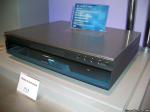
Any computer system is prone to attack. This is even more so in this internet age. It is now easy for a computer hacker in Brazil to embark on a virus attack that will affect computers in all 6 continents. Below are some tips to help you protect your computer against most attacks:
Update all softwares and ensure that you have the latest version, this is even more important for your browser software

New releases of software often come with bugs make sure you download the appropriate software patches, from the developers website, most especially for your browser. This should be done at least once every month. However, it is my hope that in the future computers will be intelligent enough to look for patches of software in your system and download them or at least seek permission for a download.
Make sure that you have the latest version of your anti-virus software installed. Do this every week. It is my hope that this process will be automated in the future.

Scan all e-mail attachments before downloading them. This will be helpful only if you have the latest version of your ant-virus software.
Scan your entire system for virus everytime you download new anti virus definition files (updated version of your anti-virus program) or every week, whichever is shorter. This also depends on how often you use your computer.
Ensure that your anti-virus software is automatically set to scan all system and media activity and e-mail. Do not assume that the program will scan automatically, set it yourself. This is necessary because the default setting of most anti-virus programs is manual scan.
Do not open any executable (.exe) file without first scanning it.
Avoid exchange of floppies.
Use an unpopular operating system. This is because most computer hackers often want to cause maximum damage and will write virus for dominant operating systems. However, this line of action is often not practical.
Install a good firewall.
Back up all files that are important to you.







